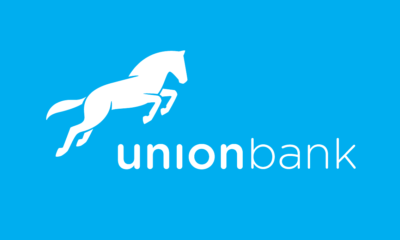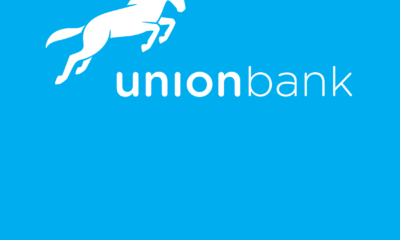Union Bank of Nigeria Plc, one of the oldest banks in Nigeria, grew profit before tax by 2 percent to N15.9 billion in the nine months ended September 2020, up from N15.5 billion posted in the first nine months of 2019.
In the unaudited financial statements of the bank, gross earnings rose by 6 percent from N111.9 billion in the corresponding period to N118.8 billion in 2020. Largely driven by the increase in earning assets.
Interest income expanded by 1 percent to N85.4 billion from N84.9 billion in the nine months ended September 2019.
Net interest income before impairment rose by 15 percent from N36.4 billion achieved in the first nine months of 2019 to N41.7 billion in the period under review.
Non-interest income appreciated by 23 percent to N33.4 billion from N27.1 billion filed in the corresponding period of 2019.
Union Bank’s net operating income stood at N69.3 billion in the period under review, representing a 1 percent growth from N68.7 billion filed in the same period of 2019.
Operating expense was largely flat at N53.4 billion, slightly higher than the N53.2 billion posted in the corresponding period of 2019 despite currency depreciation, inflationary pressures and unplanned Covid-19 related expenses.
Gross loans rose 14 percent to N678.0 billion from N595.3 billion achieved in Dec 2019. This reflects the banks growing credit facility to the real sector of the economy.
Similarly, customer deposits expanded by 28 percent to N1.1 trillion from N886.3 billion in Dec 2019. The bank attributed the improvement to gains on investments in customer-led products and digital channels which resulted in the acquisition of over 600,000 new-to-bank customers and deepening of wallet share of existing customers.
Speaking on the performance, Emeka Emuwa, CEO said: “Notwithstanding the realities of a tougher operating environment arising from the ripple effects of the Covid-19 pandemic, the Bank delivered a 6% growth in gross earnings from ₦111.9 billion in 9M 2019 to ₦118.8 billion in 9M 2020. In addition, net interest income before impairment rose by 15% to ₦41.7 billion, while non-interest income grew by 23% to ₦33.4 billion.
“We reached a major milestone as our customer deposits crossed the ₦1 trillion mark this quarter, growing by 28% to ₦1.1 trillion compared to ₦886.3 billion at the end of 2019. This reflects increasing customer loyalty and our intense retail drive. Our customer acquisition strategy has been reinforced by the versatility of our digital platforms and channels which continue to drive customer satisfaction.
“We grew our loan book by 14% to ₦678.0 billion from ₦595.3 billion in December 2019 as we cautiously extended credit to the real sector. We will continue to explore bankable lending opportunities in the Nigerian economy guided by our robust risk management practices.
“The civil unrest which erupted in October and led to significant destruction of property and small businesses across the country, will have real impact on business and the operating environment; and even as restrictions have eased, Covid-19 also remains a present threat in our day to day operations.
“Heading into the final stretch in 2020, our overarching commitment is to the health and wellbeing of our employees and the safety of our customers. Showing up for our communities is also at the core of who we are and therefore we will work with our partners and through our corporate citizenship initiatives to support individuals, businesses and our communities where we operate as we begin to rebuild and heal as a country.”
Also commenting was the Chief Financial Officer, Joe Mbulu, who said: “Union Bank’s nine-month results reflect the strength and resilience of the business. Our Profit Before Tax (PBT) grew by 2% to N15.9 billion, from N15.5 billion in the previous period.
“Our operating expenses were relatively flat year-on-year at ₦53.4 billion, compared to ₦53.2 billion in 9M 2019 despite inflationary pressures on cost and higher regulatory costs. This reflects continuing focus on cost management.
“Our asset quality continues to improve with Non-Performing Loans (NPLs) down to 3.6% from 5.8% as at December 2019, supported by ongoing efforts to diversify our loan book to include viable businesses and households. Our Capital Adequacy Ratio remains robust at 19.5%, well above the regulatory threshold.
“With the $40 million (USD) financing secured from the International Finance Corporation for on-lending to trade finance customers, we are continuing to expand our funding engagements with DFIs to support our strategic business initiatives.
“For the rest of the year, we remain focused on our business priorities in the face of the Covid-19 challenge and will continue to leverage increasing customer loyalty, stronger digital platforms and channels as well as solid risk management structure to deliver on our objectives.”


 Naira4 weeks ago
Naira4 weeks ago


 Naira4 weeks ago
Naira4 weeks ago




 Naira4 weeks ago
Naira4 weeks ago




 Naira3 weeks ago
Naira3 weeks ago
 Commodities4 weeks ago
Commodities4 weeks ago


 News4 weeks ago
News4 weeks ago
 Travel4 weeks ago
Travel4 weeks ago




 Naira3 weeks ago
Naira3 weeks ago



















